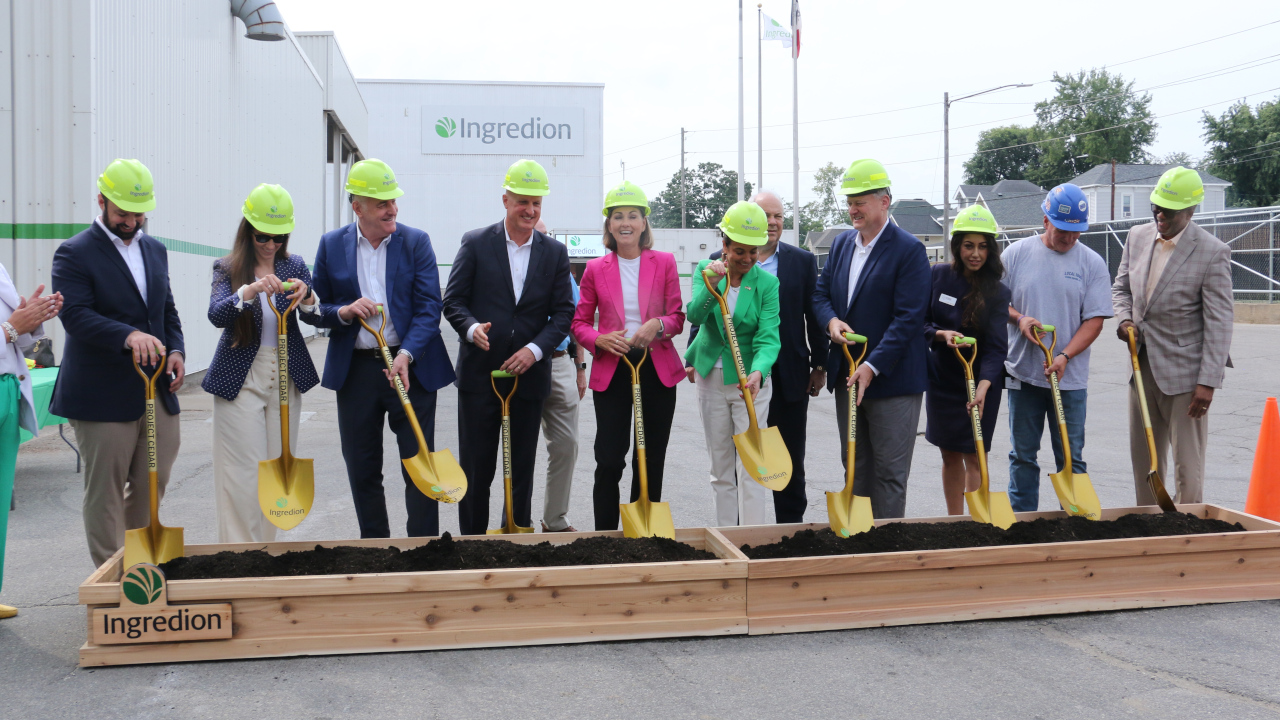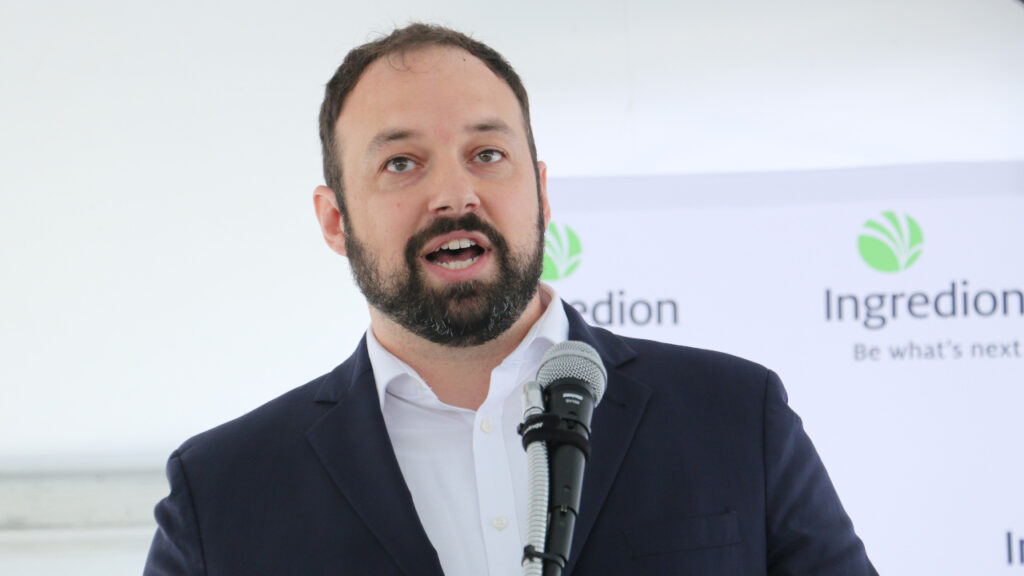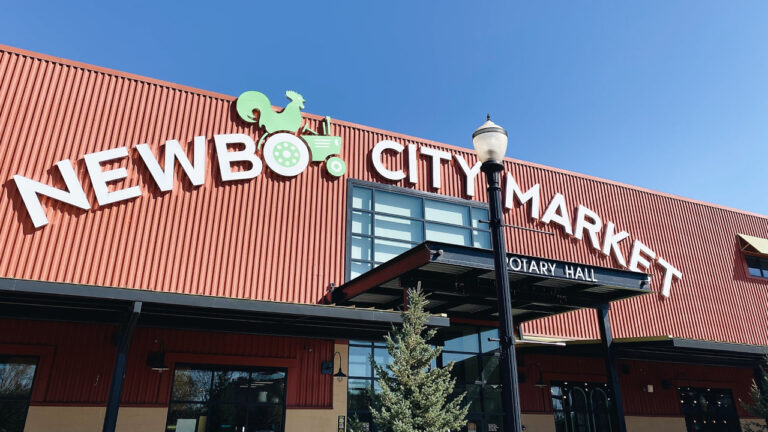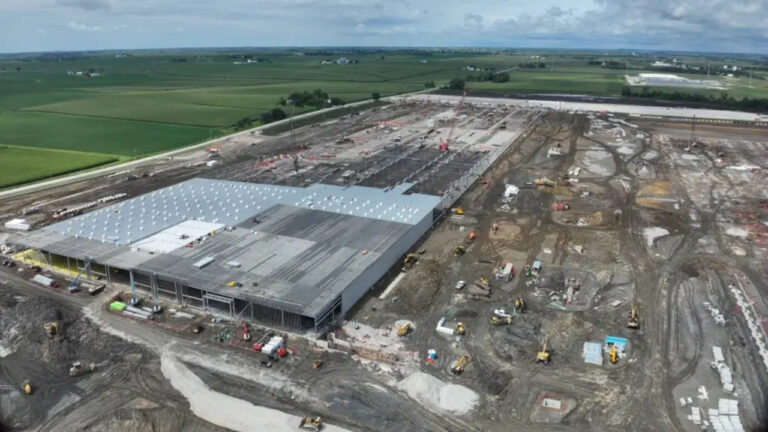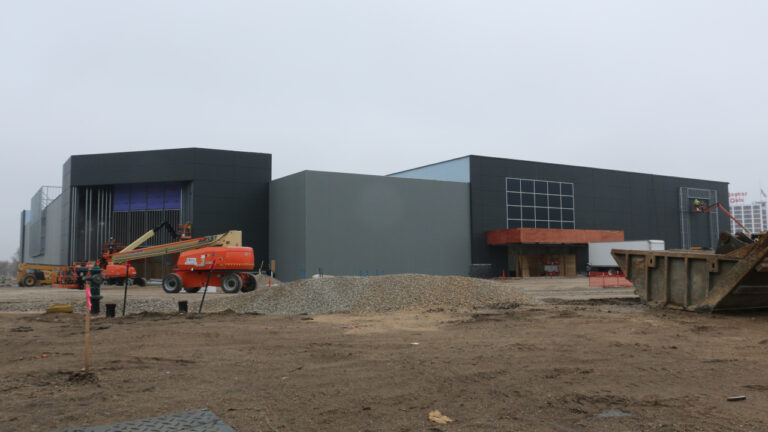Ingredion leaders and government officials took an opportunity Wednesday, at a groundbreaking ceremony in Cedar Rapids, to recognize not only Ingredion’s $50 million local expansion, but the plant’s long operating history and its symbiotic relationship with Iowa agriculture.
“Today, we break ground on the next chapter in Ingredion’s journey here in Cedar Rapids,” newly-appointed Cedar Rapids plant manager Patrick Small said as he opened Wednesday’s ceremony. “We also honor our legacy more than a century in the making, a legacy built on resilience, innovation, cooperation and community.”
Ingredion officials said the investment will modernize and expand the production of industrial starches for the packaging and papermaking industries.
The project was first announced by Ingredion in late February, just after the Cedar Rapids City Council voted Feb. 25 to authorize city financial incentives and a resolution of support of the company’s application for High-Quality Jobs Program funding through the Iowa Economic Development Authority for the project. Those tax benefits were awarded by the IEDA in March.
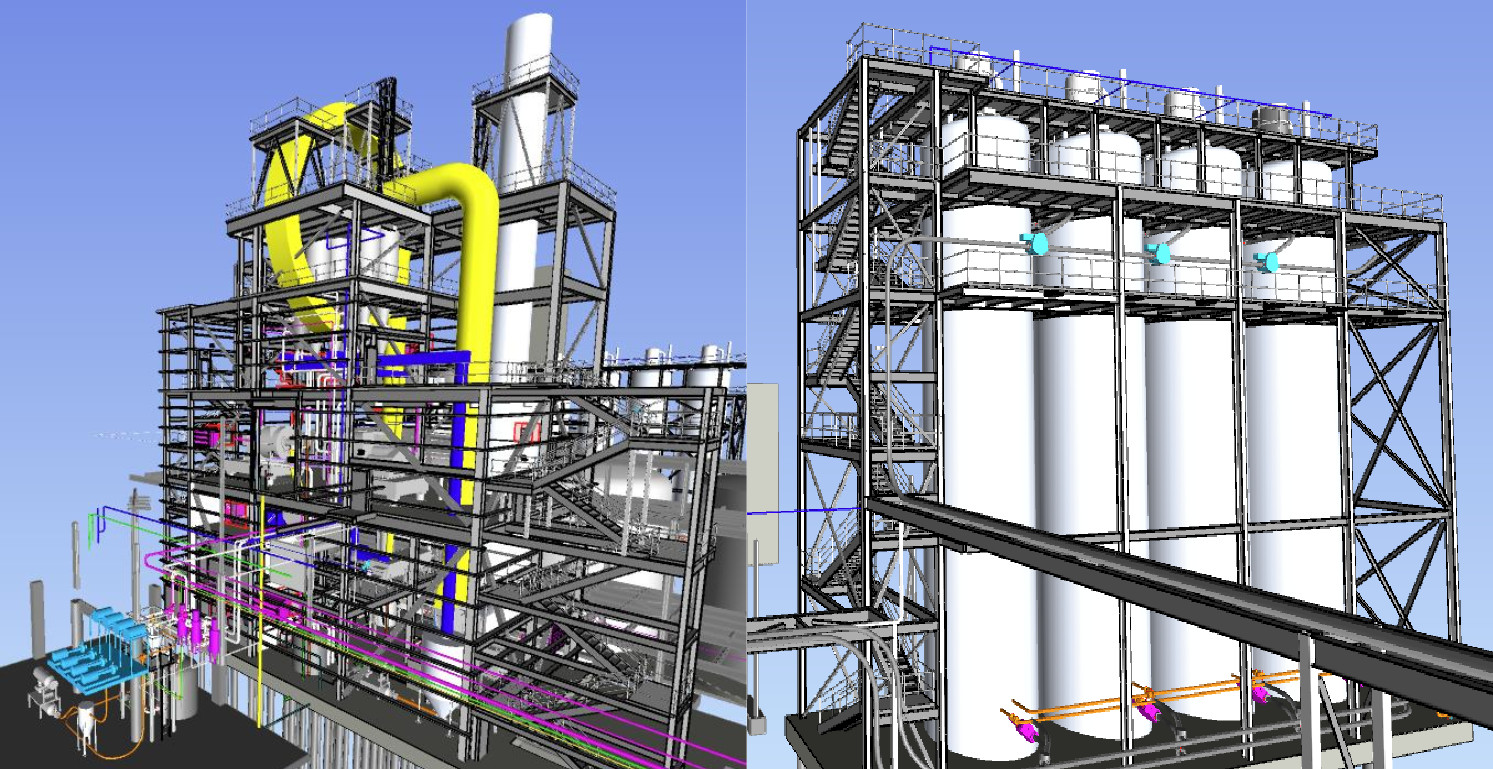
The project, which will expand the plant’s capacity by as much as 50%, is expected to create four new jobs, with a qualifying wage of $32.64 per hour.
Eric Seip, Ingredion’s senior vice president of global operations and chief supply chain officer, noted that Ingredion has more than 17,000 customers in 22 countries, and its products are consumed by more than 2.3 billion people every day.
He said the Cedar Rapids plant has conducted wet corn milling operations in Cedar Rapids since it opened in the 1890s, and all the corn processed at the plant is sourced from Iowa, “supporting the livelihoods of many, many Iowa farmers.”
He also said the project represents “an exciting chapter in the broader renaissance of manufacturing that’s coming back into America.”
“I’ve grown up in manufacturing plants,” he said. “I’ve spent my career in manufacturing. I’m very happy that as a country, we’re starting to look at bringing manufacturing jobs back into our plant. This is part of that renaissance, and our chapter with that begins here today in Cedar Rapids.”
Robert Ritchie, Ingredion’s senior vice president of food and industrial ingredients for the Americas, said that “at the risk of geeking out,” he wanted to further explain Ingredion’s role in the development of starches and polymers.
“Plant science and chemistry are at the heart of how we innovate,” he said. “That science allows us to take corn and turn it into everything from sweeteners to sodas to drying agents for sunscreens. More and more these days, corn starch is being used in corrugated boxes for online orders, produce boxes at your grocery stores and even food boxes at your local pizza place. For years, many boxes have been sprayed with plastic or petroleum products to make them stronger or more grease resistant. At Ingredion, we are making the next generation of corn starch followers that can help shift away from plastics and petroleum to stronger, greener and more sustainable boxes right here in Cedar Rapids.”
In her remarks at the ceremony, Iowa Gov. Kim Reynolds referenced a meeting she had earlier in the day with Ingredion representatives.
“I will quote what you said, which warms my heart: ‘Corn is the heart and soul of our company,’” Ms. Reynolds said. “As the number one corn producing state in the country, that is music to my ears. In fact, they actually process 45,000 45,000 bushels a day (in Cedar Rapids). And with this investment, we have the opportunity to take that up to 65,000 bushels a day. And it’s 100% sourced from right here in our great state.”
She praised Ingredion as a company that “understands how to lead by transforming ideas into solutions and investing in communities that make that mission possible.”
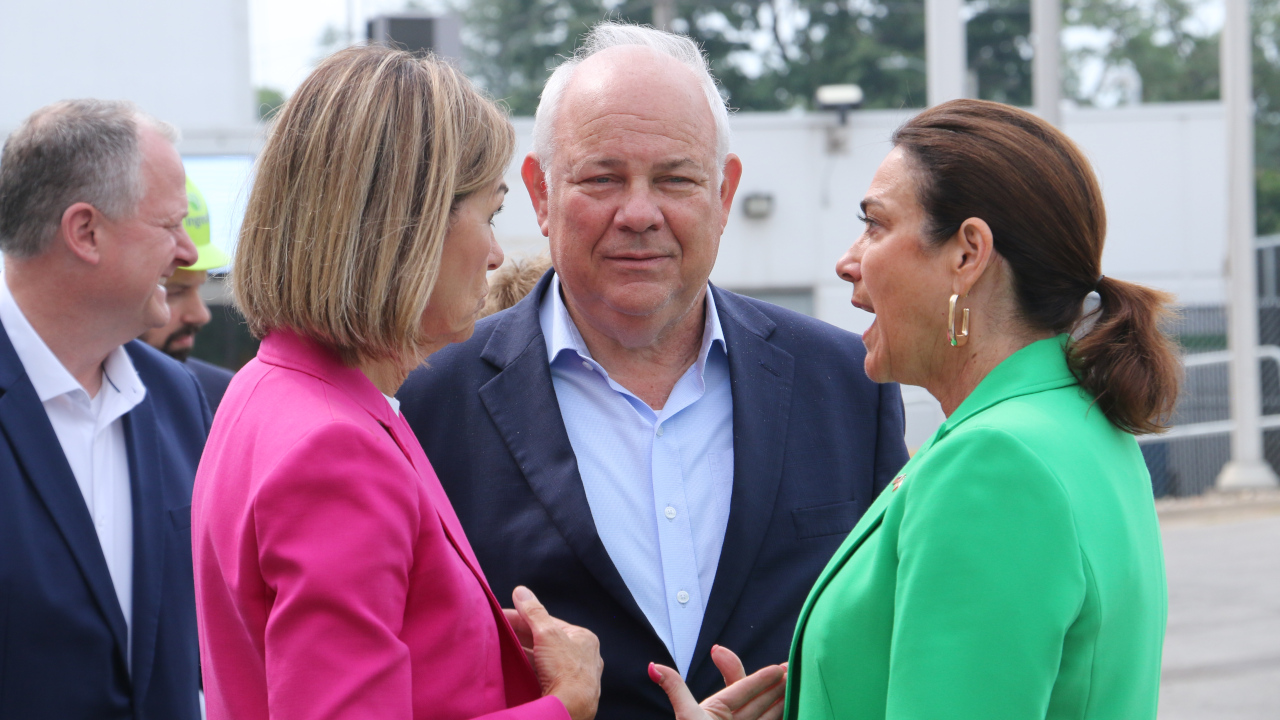
“We’ve really worked hard to create a kind of competitive environment that supports long-term investment with lower taxes, smart regulations and policies that put innovation and business growth first,” Ms. Reynolds said. “But just as important as what we offer is who we are. Iowans value relationships. We show up, we follow through, and we build things that last, and we know that when a company grows, our whole state benefits jobs through expanded supply chains and through the ripple effects that fuel strong communities.”
Cedar Rapids mayor Tiffany O’Donnell praised Ingredion’s persistence through a variety of challenges, including damage sustained at the plant in the city’s 2008 flood and 2020 derecho.
“Your willingness to continue through good and challenging times says a lot about our community and a lot about you,” Ms. O’Donnell said. “So I thank you all for your partnership and those all-important relationships. Ingredion’s presence here, and your growth now, is a powerful example of our spirit here in Cedar Rapids … with this $50 million investment, we know that you’re going to continue this proud legacy, reaffirming your commitment to our great city, our workforce, and to what we know is pur shared economic future, not just as a city, but as a state, as we work to literally feed and serve the world.”
According to city council documents released in February, the Ingredion project will include construction of three new industrial buildings at the Ingredion site, 1001 First St. SW, and a new starch flash dryer. One building at the site, just north of Riverside Park, will also be demolished as part of the project.
Work on the project is expected to be completed by October 2026.
The company traces its Cedar Rapids origins to the founding of Douglas Starch Works in 1894. It employs about 100 workers in Cedar Rapids, according to union representatives.
The Douglas Starch Works plant was leveled in an explosion in 1918, and the plant was rebuilt and became Penick & Ford in 1920. The company sat mostly idle from 1977 to 1980 as sugar prices cratered.
The company became Penford Products in 1987, and Ingredion then acquired Penford Products in 2015.
Ethanol production began at the plant in 2008 and ceased in 2021.
Ingredion makes sweeteners, starches, nutrition ingredients and biomaterials used in everyday products, from foods and beverages to paper and pharmaceuticals. The Westchester, Illinois-based company reported annual sales of approximately $7.4 billion in 2024.
